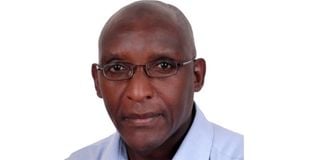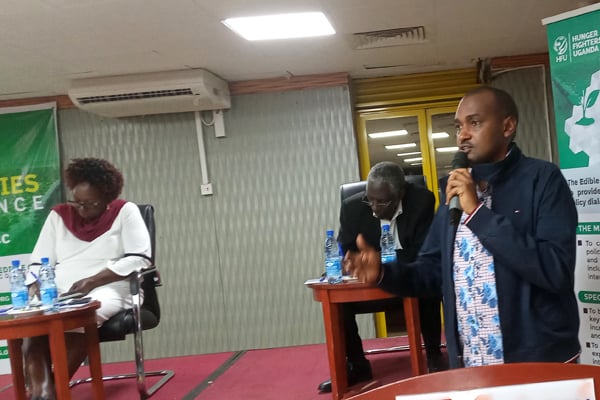Prime
Health, education, agriculture: Triplets of agrarian economy

Author: Okodan Akwap. PHOTO/FILE.
What you need to know:
- That is a big part of the story of America’s social and economic transformation. We can also try to achieve socio-economic transformation through the HEARD approach.
- The best way to do it is to treat health, education and agriculture as the triplets of our agrarian economy; whatever productive investment we make in one area we must make in the others in equal measure.
Uganda has started drilling oil. Good. In a short while, hopefully, we will join the exclusive club of oil exporters. That is even better. And the best part is that this progress puts us on course to becoming an upper middle income economy.
However, unless the proceeds from the oil and gas sector are judiciously channelled to the long-term commitment to health, education, agriculture and rural development (HEARD), poverty alleviation in Uganda will remain a pipe dream. Government policy makers and planners, have you HEARD that clearly?
My point: Oil and gas is the means, HEARD is the end; nothing short of that will significantly change the economic fortunes of our country.
I think vultures are already circling the oil and gas sector. Who will manage oil revenues? People from Mars? Who will secure the oil? Angels? I’ve already said in this newspaper that corruption may reach levels never seen before in Uganda.
We are an agrarian economy. What this means is that whatever planning we envisage in terms of transforming our society must be informed by the type – and impact – of social, political and economic policies we formulate. Problem identification is key to the policy process. Unless we recognise the need to prioritise HEARD we are unlikely to make transformative investments.
We must not be overly excited about the expected earnings from oil. Remember that several billions of shillings were used to give a “golden handshake” to a bunch of public servants who helped the government win a tax case against one of the foreign investors in the sector. These individuals, remember, were doing their routine jobs at Uganda Revenue Authority, Ministry of Justice and Constitutional Affairs, etc.
Millions of dollars also went for buying jet fighters. And a former colleague of mine at The East African newspaper, told me that when it became problematic to secure loans from commercial banks for purchasing brand new jets for Uganda Airlines, an express order – from above – was issued for the millions of dollars to be sourced from the oil fund at Bank of Uganda.
Many of the wicked problems bedevilling our society such as poverty, ill-health, poor education, and poor housing are more prevalent in rural communities than in other places. That’s why, for instance, in the recently released PLE results, pupils in urban schools performed better than those in rural areas partly because they had access to those facilities that supplement teaching.
In the area of health, there’s no gainsaying the fact that healthy people are more productive than those weighed down by disease. Health isn’t just absence of disease; it’s the sum of the physical, mental and economic wellbeing of individuals. It’s not enough to say Ugandans live within five kilometres of a health facility; they must have access to medicine and other healthcare services.
Education is the key to success. It’s the key to women empowerment. It’s the key for unlocking many other doors of possibilities. At university in the US in the early 1990s, I met students from Libya who told me that their tuition, accommodation and living expenses were all paid for by the government. Col Muammar Gadhafi, the late Libyan leader, used petrodollars to fund free education up to university level, among other social programmes.
For agriculture, we should try to draw lessons from what America did in the 19th century when it was an agrarian economy. Huge chunks of federal lands were allocated for members of Congress (MPs) to sell and establish in their constituencies A&M (Agriculture and Mechanics) Colleges teaching modern agriculture and the “mechanical arts.” In that way many students as well as local farmers were taught how to improve crop quality and yields through scientific methods.
That is a big part of the story of America’s social and economic transformation. We can also try to achieve socio-economic transformation through the HEARD approach. The best way to do it is to treat health, education and agriculture as the triplets of our agrarian economy; whatever productive investment we make in one area we must make in the others in equal measure.
This should ensure robust and sustainable growth of our economy.
Okodan Akwap (PhD), Associate consultant, Postgraduate Diploma in Journalism and Communication Management, Uganda Management Institute.




